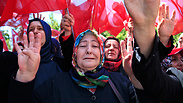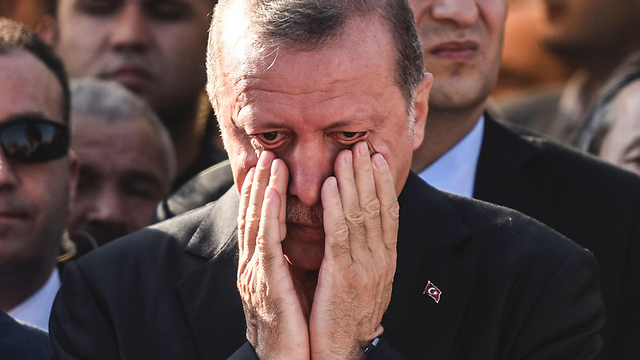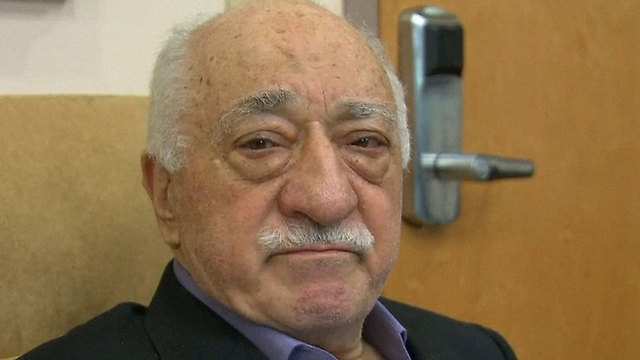
Failed coup is Turkey’s Iraqification moment
Op-ed: Just as the American purge of the Baath party in Iraq following the occupation led to the collapse of the country's state structure, Erdogan's massive cleanse of state institutions could lead to similar catastrophic results.
ANKARA - Turkish Foreign Minister Mevlut Cavusoglu has strongly denied any claims that his government had prepared arrest lists before Friday’s failed coup attempt. Taking him by his word, things could be even worse. The government could be acting out of pure anger without thinking thorough what would be the consequences of rounding up thousands upon thousands of people from the military, the judiciary system, other state institutions and from academia.
This failed military coup could become Turkey’s Iraqification moment. After the occupation in Iraq, the first thing on the American agenda was to remove all Baath party members from Iraq's state institutions. That led to the collapse of the state structure in the country. The mass arrests in Turkey now could lead to a similar situation.
The Turkish government was in a convenient marriage with Fethullah Gülen’s movement up until the corruption scandal of December 2013. Since then, they have been going through an ugly divorce crowned by a scandalous bloody coup attempt. Turkish President Recep Tayyip Erdoğan is now the sworn enemy of the Gülenists and seeks to cleanse all state institutions from them in one fell swoop.
Turkish media is reporting that over 10,000 state employees have lost their jobs—some by getting arrested, others by having their contracts suspended. For any structure to kick out such a massive amount of employees at one time, this would spell out institutional crisis.
When Erdoğan took power, he was eager to put his loyalists in place and mounted a large-scale shuffle of Turkey’s state insitutions. This turnover continued until the government was convinced it had all state institutions under its control. Among these newly-instated loyalists were surely Gülenists, who made their way up the political ladder with the blessings of the government.
For its current purge, the Turkish government was able to come up with a list of Gülenists in the blink of an eye. It could be because they knew who these Gülen followers were from the very beginning, while still allowing them to gather strength within the state’s institutions. Alternatively, the government is leading yet another cleansing, including those who have no connection to the government or the Gülenist camp. The question then is, who are replacing these people; where are they coming from; how qualified are they?
Turkey borders Iraq and Syria, where a significant battle is being waged against radical Islamist groups. The country is now coming under attack by the Islamic State of Iraq and the Levant more frequently. Its fight against the separatist Kurdish terror organization, the PKK, is escalating. At this moment in time, Turkey needs to be at its best and remain vigilant to avert future terror attacks. These mass arrests, however, make one wonder how vulnerable the country is today.
In the face of such serious challenges to the country’s well-being, the government should have taken gradual steps to cleanse itself of the Gülenists. Yet the whole shuffle of state employees for the past 14 years has already made the country less secure and less confident. With this last move, the challenge is only getting more serious and promises a dark path ahead.












